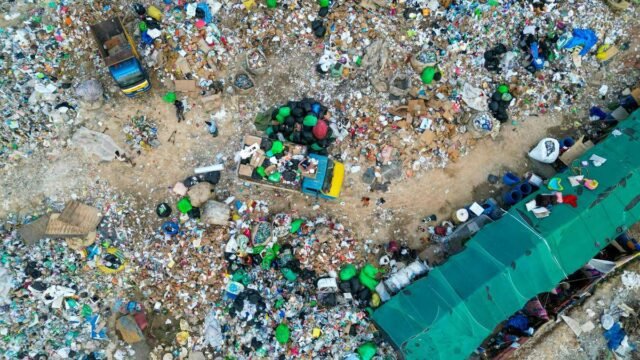The story so far:
The rapidly increasing plastic pollution is a serious global environmental issue, as it significantly impacts ecosystems, their functions, sustainable development and ultimately the socio-economic and health dimensions of humanity. With this realization, this year’s World Environment Day (5 June) focused on “ending plastic pollution” and promoting awareness and action worldwide.
How serious is the issue?
The OECD’s “Global Plastics Outlook” reveals that global plastic consumption has increased significantly, driven by emerging economies and market growth. Plastic production doubled between 2000 and 2019, reaching 460 million tonnes, while waste generation rose to 353 million tonnes. Almost two-thirds of plastic waste has a lifespan of less than five years, with 40% coming from packaging, 12% from consumer goods and 11% from clothing and textiles. Of this waste, only 9% is recycled. Another 19% is incinerated, 50% ends up in landfills and 22% evades waste management systems, often ending up in uncontrolled dumps, incinerated in pits or released into the terrestrial or aquatic environment, particularly in poorer countries.
According to the Intergovernmental Panel on Plastic Pollution, 500 million tons of plastic were produced or used in 2024 alone, generating about 400 million tons of waste. If current trends continue, global plastic waste could nearly triple to 1.2 billion tons by 2060.
Ocean Defense data reveals that 11 million tons of plastic enter the ocean each year, in addition to the estimated 200 million tons already flowing through our marine environment. According to an expert from the United Nations Environment Programme (UNEP), if the current rate of plastic production and waste generation continues, there will be more plastic in the ocean than fish by mid-century.
Why is plastic pollution such a serious problem?
The non-biodegradable nature of plastic is a serious challenge. Over time, it simply breaks down into smaller and smaller pieces, creating micro- and nanoplastics that infiltrate and pollute every part of the planet, from the summit of Mount Everest to the depths of the oceans. Plastics account for 3.4% of global greenhouse gas emissions. UNEP has said that the production, use and disposal of plastics could account for 19% of the total global carbon budget by 2040.
What are the health effects of plastic?
Every stage of the plastic life cycle has an impact on health. Plastics contain thousands of hazardous additives (including carcinogens, neurotoxicants, endocrine disruptors) that can leach from products and waste and persist in the environment, posing a threat to humans and ecosystems. Studies have also shown that plastics have affected the reproductive capacity of animals. In this context, more than 18 million health professionals, represented by 63 health organizations in 88 countries and more than 1,000 individual signatories, urge the negotiators of the plastics treaty to protect the planet and people from plastic pollution and demand urgent global action through an open letter.
What measures are proposed?
At the fifth session of the UN Environment Assembly (2022), all 193 UN Member States agreed to end plastic pollution through a legally binding international agreement. This is essential to achieving the UN Sustainable Development Goals, including climate action, sustainable consumption and production, protecting the oceans, and restoring ecosystems and biodiversity. UNEP’s ambitious target of reducing plastic waste by 80% within two decades requires serious action and international cooperation, innovation, better product design and environmentally friendly alternatives, as well as efforts to improve waste management and increase recycling.
Since plastics and their chemical additives are mainly made from petrochemical feedstocks, limiting their production and eliminating unnecessary items, especially single-use plastics, is urgent. Governments should only allow production within the existing legal framework.
The majority of plastics used today are virgin (primary) plastics, while global production of recycled (secondary) plastics is only 6%. Improving recycling technologies and creating profitable markets for recycled plastics is crucial.
Self-taxation and incineration taxes can incentivize recycling. Extended producer responsibility schemes, landfill taxes, deposit refunds and fees for your litter should be introduced.
Finally, people need to adopt greener alternatives that have been used before. The media also plays an important role in creating awareness.
Prakash Nelliyat is a former fellow, Centre for Biodiversity and Law, National Biodiversity Authority, Chennai and co-author of the books: “Conserving Biodiversity through Access and Benefit Sharing” and “Biodiversity and Business” published by Springer Nature, Switzerland
Published – September 15, 2025 at 08:30














